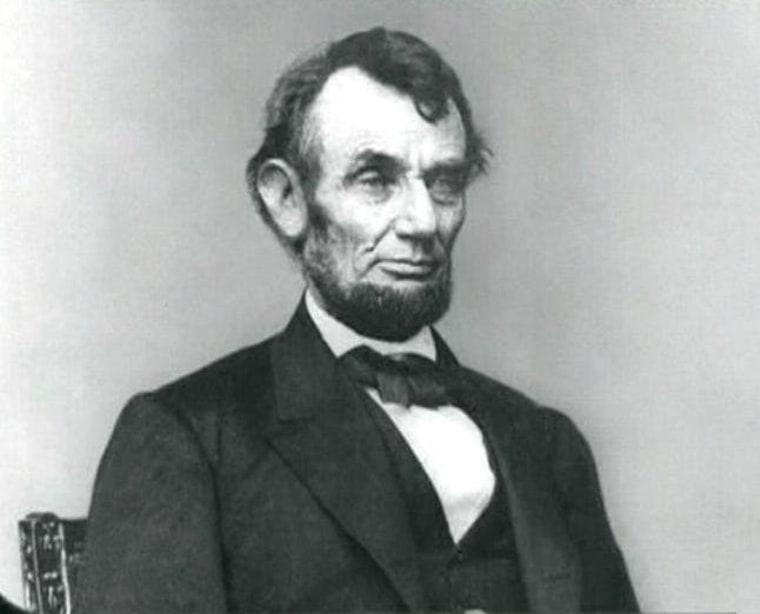NOWist Wendy Schiller is a professor of political science at Brown University and frequent contributor to NowWithAlex.msnbc.com
On the eve of the Illinois Republican Presidential primary, the words of Abraham Lincoln bear repeating. In accepting the Illinois Republican nomination to run for U.S. Senate against the Democratic incumbent Stephen Douglas, Lincoln gave a speech on June 16, 1858 in which he uttered the phrase, “A house divided against itself cannot stand.” He was of course referencing the intense division within the nation over the issue of slavery. In the course of that speech, Lincoln argued that it was impossible to exist in a Union where some states allowed slavery and others outlawed it.
Abraham Lincoln was speaking of the nation at large but certain parallels can be drawn to the GOP in 2012.
Although Lincoln lost his bid for U.S. Senate in 1858, he went on to secure the GOP nomination in 1860 and win the general election. What many of us overlook was the division that plagued the Republican Party in that 1860 nomination contest, which considered five major candidates. In modern parlance, Lincoln was not the clear frontrunner, and he did not have strong backing from any segment of the party. He was anti-slavery, but other than that intense position, he appeared to be all things to all people – the quintessential compromise candidate. Lincoln, among the least experienced of all the candidates, was chosen on the third ballot. He won the general election with less than 40% of the popular vote but secured a large victory margin in the Electoral College.
So what parallels can we draw here? In Tuesday’s primary, both Romney and Santorum can draw on Lincoln to gain support among Illinois voters but in remarkably different ways. Romney can draw the parallel of being a candidate who has the best chance to appeal to a wide segment of the voting populace because he simultaneously espouses conservative views and is generally viewed by independents and moderates as acceptable. Santorum can argue that holding firm convictions is a plus, not a minus, and that losing a Senate election in a large key electoral state does not mean that he cannot win the White House.
The more general parallel between 2012 and 1860 is the extent of division in the nation on issues such as access to health insurance and women’s reproductive rights. While these issues are not as fundamental as slavery per se, they do touch upon conceptions of rights as we know them today. Are we a society that rejects the concept of equal right to health insurance? Do states have the right to refuse to follow federal guidelines to implement federal law? Next Monday, the Supreme Court will begin to hear oral arguments on challenges to several parts of the Patient Protection and Affordable Care Act. The court has several options in deciding these issues and will render its decision prior to the November general election. The end result could in fact be a house divided on health care with some states expanding coverage on their own, and other states moving to limit access to health insurance.
Similar divides are cementing among states with respect to women’s reproductive rights. We see states adopting such onerous and invasive requirements on the provision of abortion services that even the most courageous woman would be deterred from exercising her rights as defined by the Supreme Court and upheld by majority public opinion. The State of Texas has gone as far as cutting off lifesaving services such as Pap smears and mammograms for poor women to avoid supporting Planned Parenthood. And it appears that some would go so far as to ban contraception itself.
Can the nation survive such intense division over fundamental issues as access to health insurance and reproductive choice? Romney and Santorum must own up to their own roles in fomenting these serious divisions. Rather than promising to unite the country, both Santorum and Romney insist on widening the divide in both their own party and the broader electorate. As they seek victory in the Illinois GOP primary on Tuesday, they should heed the heart of Lincoln’s warning to his own party: if you fail to bridge the divide, you will suffer for it. And so will the country.
